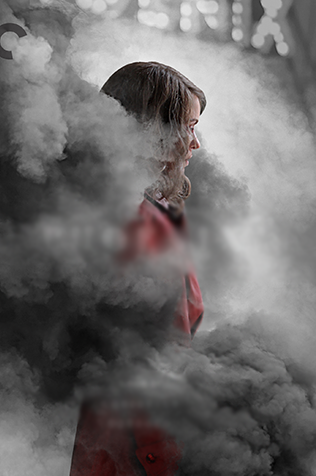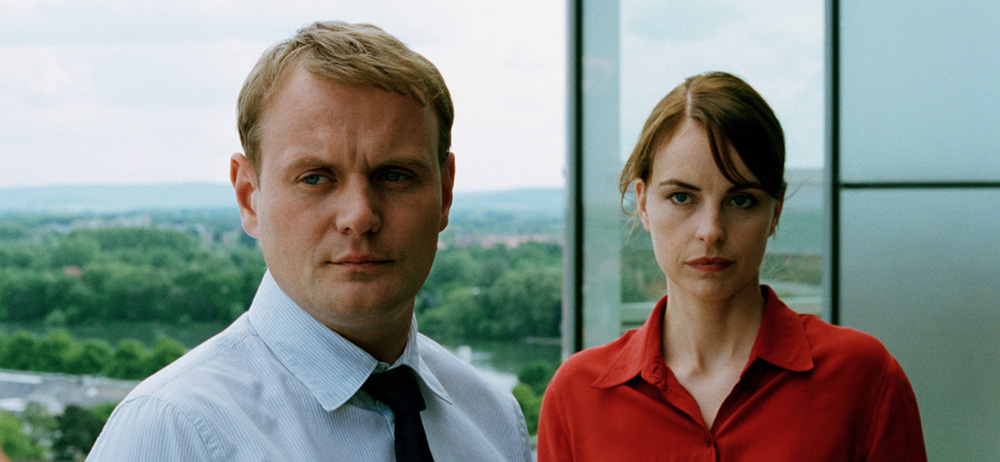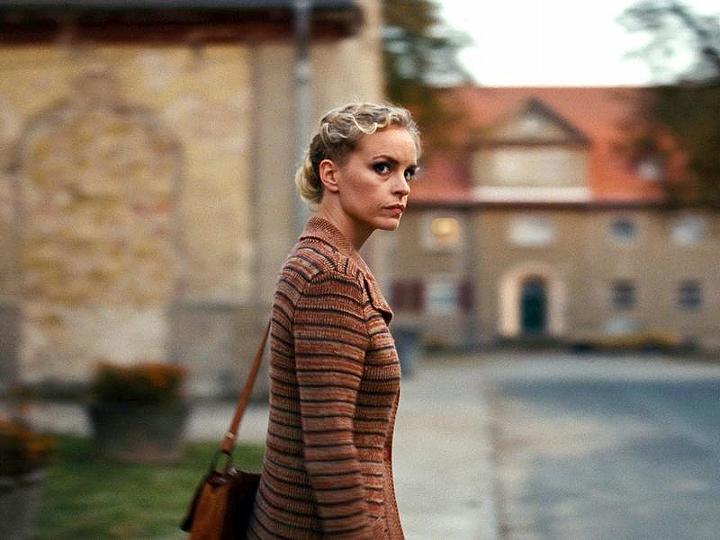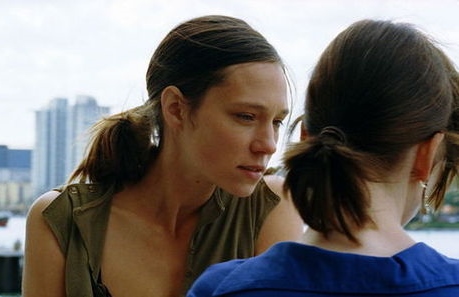Phoenix
 Thursday, March 16, 2017 at 11:27
Thursday, March 16, 2017 at 11:27 This film will be always be known for its final scene, one of the most magnificent in late memory. But it is all that comes before it – the simple chamber drama of diffidence and greed, the apocalypse that nearly ended all chambers, all dramas, all greeds – that seems underwhelming until the viewer apprehends the coda. Indeed, he hears the coda before it is actually played, much as one might anticipate the final movement in a symphony because all prior movements must disembogue into a solitary note.
 We begin with a most unusual scene: a female driver navigates a recently – from all indications, very recently – demilitarized zone. Now all is quiet and bright, like the future of this once-great country, but the scars remain. Scars in the literal sense when a sort of mummy appears in the passenger seat. The car is halted by a brash English-speaking soldier, whom the driver insists has not stumbled upon “Eva Braun,” which settles our time and place. The soldier nevertheless demands a closer inspection and, in short order, solemnly withdraws and apologizes. The women proceed – a reference to one of history’s most notorious concubines was not necessary to establish the figure’s gender – and arrive at a clinic for most desperate clients. There the surgeon identifies Lene (Nina Kunzendorf) as a member of a massacred minority, and yet the camera lingers on the woman still cloaked in plaster. Some options are confronted (“One cannot look exactly the way one was before”), and some decisions made. While overnighting in the hospital, our mummy wanders into the hallway only to spot a parallel shape and ambition a few doors down. They both end up in a room neither should have entered, a cabinet of memories, and who we think is our invisible woman cradles a photograph pinned to the wall. The picture may or may not contain her former self, but it is certainly outshined by the loutish smile of Johnny Lenz (Ronald Zehrfeld).
We begin with a most unusual scene: a female driver navigates a recently – from all indications, very recently – demilitarized zone. Now all is quiet and bright, like the future of this once-great country, but the scars remain. Scars in the literal sense when a sort of mummy appears in the passenger seat. The car is halted by a brash English-speaking soldier, whom the driver insists has not stumbled upon “Eva Braun,” which settles our time and place. The soldier nevertheless demands a closer inspection and, in short order, solemnly withdraws and apologizes. The women proceed – a reference to one of history’s most notorious concubines was not necessary to establish the figure’s gender – and arrive at a clinic for most desperate clients. There the surgeon identifies Lene (Nina Kunzendorf) as a member of a massacred minority, and yet the camera lingers on the woman still cloaked in plaster. Some options are confronted (“One cannot look exactly the way one was before”), and some decisions made. While overnighting in the hospital, our mummy wanders into the hallway only to spot a parallel shape and ambition a few doors down. They both end up in a room neither should have entered, a cabinet of memories, and who we think is our invisible woman cradles a photograph pinned to the wall. The picture may or may not contain her former self, but it is certainly outshined by the loutish smile of Johnny Lenz (Ronald Zehrfeld).
The lady who slowly unravels herself – literally and figuratively – is Nelly Lenz (Nina Hoss). Nelly has just survived an unspeakable evil, one so incredible and all-encompassing that its mere endurance is considered a death of sorts; in fact, Nelly is presumed dead by her loutish husband and everyone else. Black-eyed and dented, she is driven by Lene to a pile of ghastly rubble only to be informed that what remains of her home is roughly akin to what remains of her immediate family, prompting Lene to propose a special ascent. Yet Nelly hesitates, and she hesitates because of a certain loutish smile. Nelly will seek out Johnny, because she believes only Johnny will be able to look past the internal and external wounds that have reduced her into a shadow, a grey pile of ash just like her namesake. She will find him as she left him, in a bar also named after a mythical bird, a bar once filled with the stiff, merciless soldiers who sought the annihilation of a people and a continent, now a venue of the vulgar filled with servicemen who obliterated those annihilators. But somehow he does not recognize her. She only resembles his wife, who cannot be anything except dead – and here I will permit myself an aside. We should not find it absurd that a woman could wish to remain in a country that tried to destroy her, especially if that country echoes with her language and her entire history. We should likewise eschew the temptation to judge survivors who simply wish the past to vanish during the day and resign themselves to hellish reminders each night. But what we can and should find absurd is that a woman like Nelly Lenz, once a well-known cabaret singer, could overlook a loutish smile and barrel of a gut, the only two features the viewer will ever remember about Johnny Lenz, once her accompanying pianist. So when Johnny is arrested one terrible October afternoon when the war has already assumed its final turn, it will only take two days for his wife to be detained as well. The trouble with this whole story, according to Lene, is that the accompanying pianist does not accompany his wife on what will likely be her final march, having been released the very same day of her arrest – and we should stop our revelations right there.
Some implausibilities surface in Phoenix that will distract the inexperienced viewer, until we realize that we are not being asked to measure plausibility. Instead, our task involves the will to live on the part of someone who has been subjected to atrocities no human should imagine much less sustain. Is the desire to regain what has been lost in whatever form possible, even if that form possesses but a loutish smile and a claim on an inheritance? Or is it the desire to recreate what once was yet in a different form, much like the holy land that Lene assures Nelly will provide them both with peace of body and soul? The question is never quite answered, because this is a Petzold production, and because Nelly has already ingested far too many questions. What she really wants is to become again the cabaret singer who, by dint of stealth, her husband's ingenuity, and a handful of friends, remained untainted by the evil around her for the vast majority of these wicked years. So when Lene shows her a picture of former acquaintances, she safely presumes that the crosses above their heads indicate their current non-existence on earth. "And what about the ones with circled heads?" she asks innocently, and is informed that those were the very opposite of innocent. Those familiar with German cinema and literature will detect a cynicism and slenderness of character development much more typical of their Gallic counterparts, which is unsurprising given the original story. They will also detect echoes of a French tale about a drowned woman in the Seine and a deranged surgeon, and yet another French tale that in time became one of the greatest of all cinematic accomplishments. Unlike those two unusual productions, Petzold's work relies on its actors, especially on Hoss's superhuman talents, to render a very simple tale with steadily rising power. The film, grey and unsubstantial at its onset, resolves itself into concrete and glorious hues. And, as a certain cabaret singer might whisper, my ashes like the Phoenix may bring forth a bird that will revenge it on you all.



